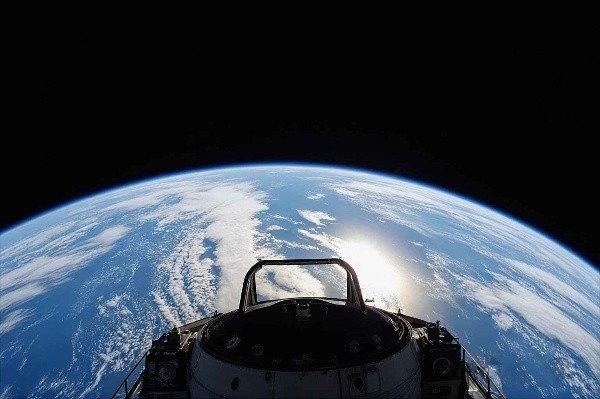Introduction: A New Era in Spacewalks
SpaceX is set to make history with Polaris Dawn, the first-ever privately operated spacewalk. This unprecedented mission, led by billionaire Jared Isaacman and comprising two SpaceX employees and a former military pilot, aims to push the boundaries of private space exploration. The launch on Tuesday marked the beginning of a five-day journey that takes the crew farther from Earth than any manned mission since Apollo in 1972. However, as the crew prepares for their spacewalk, questions arise about the legal responsibilities and safety standards governing private space missions.
Legal Concerns: Revisiting the Outer Space Treaty
The Polaris Dawn mission has sparked debates about compliance with the 1967 Outer Space Treaty (OST), a Cold War-era agreement designed to govern space activities. Article VI of the OST mandates that nations are responsible for the space activities of non-governmental entities launched from their soil, requiring authorization and supervision. Critics, like Tomasso Sgobba of the International Association for the Advancement of Space Safety, argue that the US may be violating this provision by not adequately regulating SpaceX's mission. While the Federal Aviation Agency (FAA) has limited oversight, only certifying rockets and spacecraft for safety on Earth, the broader supervision of private human spaceflight remains restricted by federal law until at least 2025.
The Role of Private Companies: From Suppliers to Pioneers
Private companies have transitioned from being mere suppliers to leading explorers in the new space race. Players like Virgin Galactic, Blue Origin, and RocketLab are breaking new ground with space tourism and scientific missions. SpaceX, aiming to land humans on Mars, exemplifies this shift. Despite their groundbreaking achievements, the lack of stringent regulatory oversight raises concerns about safety and compliance with international treaties, especially as private companies might stake claims on celestial bodies in future endeavors.
The Importance and Risks of Spacewalks
Historically, spacewalks have been pivotal for various missions, such as repairing the Hubble Space Telescope and building the International Space Station. Despite their necessity, spacewalks pose significant risks, including exposure to micrometeorites, radiation, and potential suit malfunctions. The Polaris Dawn crew will undergo extensive preparation to mitigate these dangers, including gas exchanges to prevent decompression sickness. Nonetheless, the absence of independent oversight remains a point of contention, with experts like Sgobba warning of potential risks that might not be fully addressed without external review.
The Future of International Space Regulation
Experts are divided on the adequacy of the OST in governing modern space activities. While some, like Ram Jakhu of McGill University, argue that the treaty allows for flexibility and adaptation to new challenges, others, including Sgobba, call for an independent international body to oversee space safety. The treaty's enduring relevance lies in its broad principles, which advocate for peaceful exploration and the shared use of space resources. However, as private companies continue to push boundaries, the need for harmonized regulations becomes increasingly apparent to ensure responsible exploration and prevent geopolitical conflicts.
Conclusion: Balancing Innovation and Responsibility
The Polaris Dawn mission highlights the complexities of private space exploration, where innovation intersects with legal and safety concerns. As private entities like SpaceX lead humanity's ventures into the cosmos, ensuring compliance with international agreements and maintaining rigorous safety standards will be crucial. The ongoing debate over regulatory oversight underscores the need to balance technological advancement with responsible stewardship of space, ultimately ensuring that the benefits of exploration are shared by all humanity.








